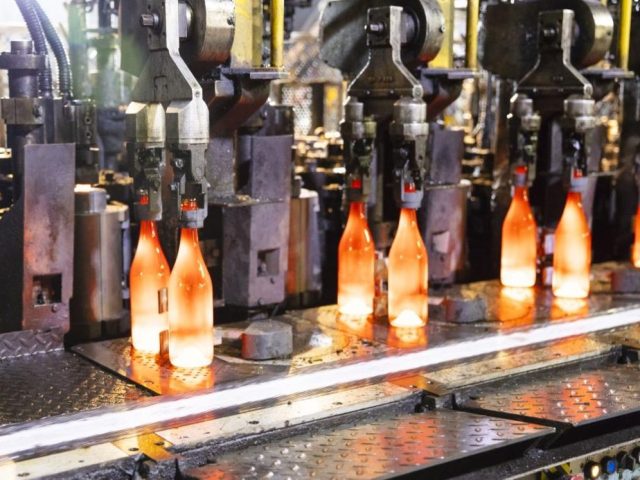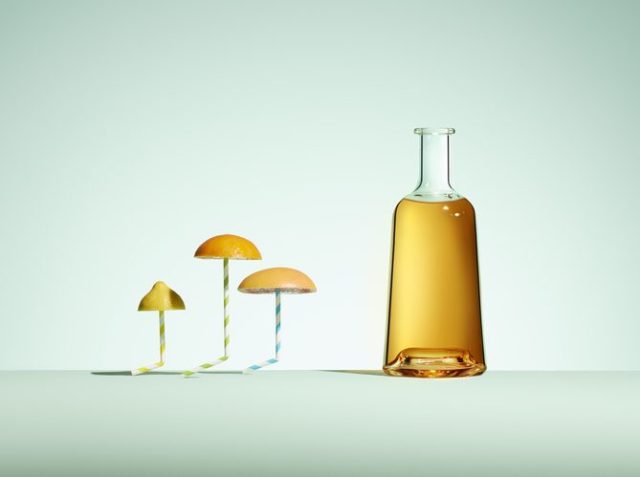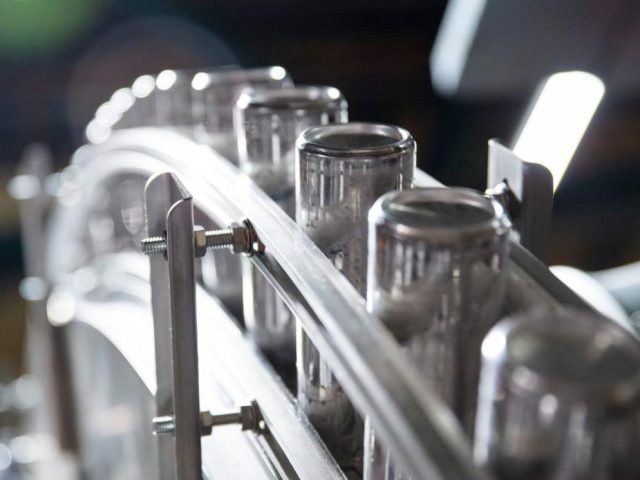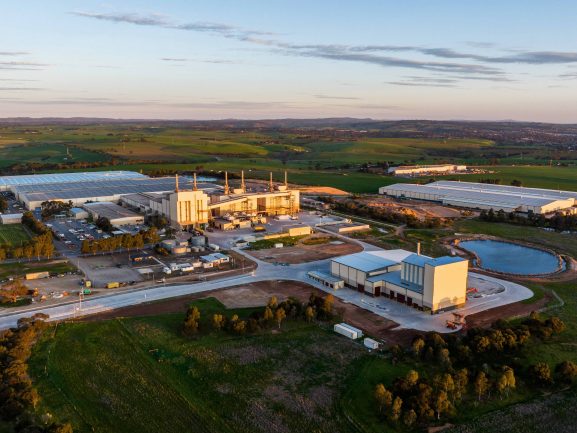
Orora has taken to its 1H25 financial results call to announce that its Gawler site in Australia will transition from three furnaces to two, with the G1 furnace closing in the second half of calendar year 2025.
The company said this move will result in a very small volume of production getting redirected to the Ras Al-Khaimah site in the UAE to meet customer demand, in the event of oversupply. It added that a two-furnace operation will be a good model to keep servicing demand for Australian wine, in addition to improving utilisation and efficiency at the site and lower costs overall.
Orora managing director and CEO Brian Lowe said the G1 furnace closure comes as the Australian commercial wine market has been in structural decline for several years, with declines greater than growth opportunities from exports to China or new products such as food jars.

Considering this, it undertook a review of production capacity in Australia and decided on the G1 furnace closure.
“Orora has managed softness in commercial wine and beer volumes in Australia for several years, and in light of this has undertaken a review of glass capacity across the Australasian market. This has resulted in the decision to move from a three furnace to two furnace operation at Gawler, and close our oldest furnace, the G1 furnace, in the second half of calendar year 2025,” Lowe said.
“In turn, some existing production volumes will be redirected to our manufacturing site in the UAE.”
The closure of the G1 furnace is said to reduce capacity by 100kt and avoids an estimated rebuild capex of more than $100 million in 2029.
Plus, with the successful completion of its G3 rebuild and oxygen plant construction in December 2024, the company expects higher furnace utilisation to result in improved productivity and emissions, lower unit costs, and improved margins compared to continuing the operation of all three furnaces underutilised.
The Global Glass (Gawler) segment revenue for 1HFY25 was $655.5 million, up 143.1 per cent. Its EBIT was $71.4 million, up 41.3 per cent.
Orora expects an increase in wine volumes from Chinese exports but claims the domestic commercial wine market will remain challenging, given the structural decline in demand, for FY25 and beyond.
However, it added that there is potential for an additional $20 million in onerous contracts resulting from the G1 closure in future.
1H25 financial results
Orora has released its 1H25 financial results for the six months ending 31 December 2024, where it also revealed financials for its Australasian Cans segment for the first time.
Revenue for the Australasian Cans segment for the first half FY25 was $372.8 million, up 5.2 per cent. Its EBIT was $49.4 million, up 6.4 per cent.

Orora said moderate volume growth of 1.1 per cent in this segment reflected subdued consumer spending, especially in beer, and higher alumimium prices. It said stronger second half volume growth is expected with increased customer production capacity ramping up, but volumes are expected to remain moderate due to lower consumer spending.
“We are pleased to report the performance of the Australasian Cans business on a standalone basis. This business again performed strongly, delivering strong growth with EBIT and revenue increasing more than five per cent, despite modest volume growth, which reflected subdued consumer spending,” Lowe said.
“We continue our program of capacity expansion across the Cans network, with a second line at Revesby NSW commissioned late in 2024. Preliminary works have commenced on a new line at Rocklea Queensland, as announced following the sale of OPS.
“This expansion program will facilitate further organic growth and leverage the ongoing preference shift to cans for some beverage categories.”
Global Glass (Saverglass) revenue for the period was €306 million, down 14.5 per cent. Its EBIT was €38.1 million, down 6.4 per cent.
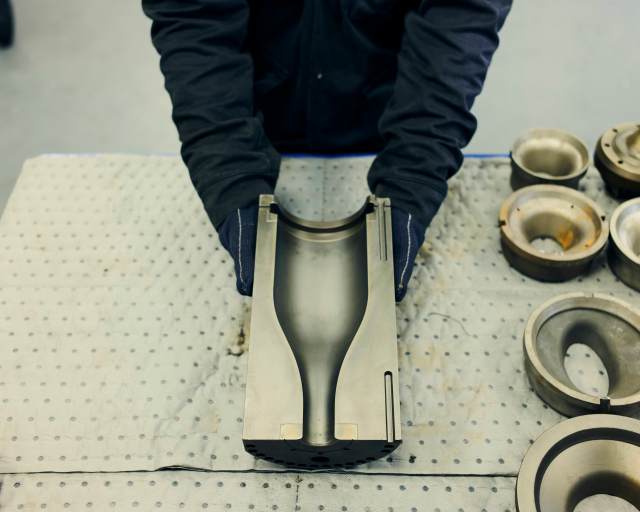
Orora added that de-stocking is continuing but order intake is indicating improvement for America and Europe in the second half.
Orora has also reviewed its capacity requirements for Saverglass to determine its future needs. It said ongoing capacity requirements will be evaluated with lower European demand, and short-term actions have been taken to reduce costs.
Orora said this revenue reflects a 13 per cent volume decline since 2H24 with de-stocking continuing. The EBIT decline since 2H24 was said to be moderated by cost reductions, a realisation of synergies, lower profit sharing and reduced depreciation.
It is also monitoring the US tariff situation as approximately seven per cent pf Saverglass revenue involves products manufactured in Mexico and sold into the US.
Orora added it plans to invest in the modernisation of the Ghlin manufacturing site in Belgium, which would result in it becoming the most economic furnace for European wine and champagne bottle production.
Accordingly, all European wine and champagne bottle production would be consolidated at this site, enabling capacity at Ras Al-Khaimah to be utilised for the Australasian and US markets.
Overall, the company reported an underlying EBIT of $120.8 million, up 24.6 per cent from the same time last year. This includes six months of Saverglass contribution compared to one month in the pcp.
Underlying EBIT excluding Saverglass was reported at $58.4 million, down 30.1 per cent.
“This was largely due to the G3 furnace shutdown at Gawler which was hampered by bad weather and equipment delays, impacting EBIT by $24 million,” Lowe said.
“De-stocking across the Saverglass business continues, and while we have noted some encouraging signs of improved order intake, the pace of recovery in Europe remains uncertain.”
OPS and Closures update
Lowe also mentioned that the sales of OPS and Closures have been completed – OPS sold to Veritiv for almost $1.8 billion and Closures was recently sold to Interpack for a $20 million sale price, streamlining Australasia beverage offering.
“In the first half of FY25 we continued to transform the Orora Group, simplifying our portfolio through the sale of the OPS business as well as the sale of the Closures business. This now enables us to focus on the global beverage industry through our market-leading Glass and Cans offerings,” Lowe mentioned.
“With a strong balance sheet following the OPS transaction, we have reduced debt and are returning value to shareholders through an on-market share buyback. We are now focused on organic growth opportunities, particularly through capacity expansion of the Cans business and leveraging our Global Glass network to cater for all segments of the beverage industry.”
